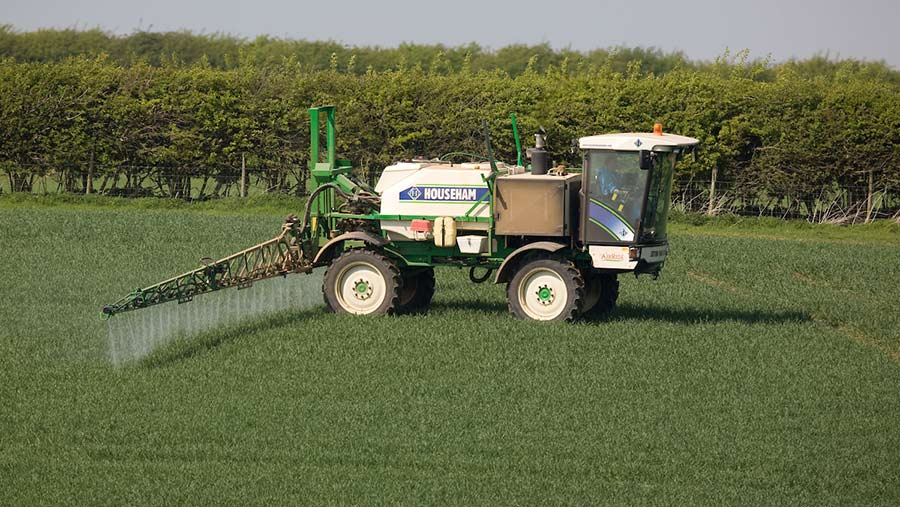Parallel imports of pesticides ‘cliff-edge’ must be avoided, NFU says
 © Tim Scrivener
© Tim Scrivener British growers are facing of loss of choice of plant protection products (PPPs) on the market if the government fails to act now to extend parallel imports, the NFU has warned.
Parallel trade permits have allowed PPPs to be imported into the UK, sold and used, based on regulatory assessment work done in another EU country.
But having left the EU, the Health and Safety Executive (HSE) has withdrawn parallel trade permits in Great Britain and set a final date for sale of parallel products of 30 June 2023 and a final use date of 30 June 2024.
See also: Maize growers face prospect of untreated seed next year
As things stand, from July no new parallel permits will be issued in Great Britain and, where appropriate, they will be allowed to continue in Northern Ireland only, said Matt Culley, the NFU’s Combinable Crops Board chairman.
Parallel imports of pesticides are essential for security of supply and these allow growers to source generic alternatives for vital crop protection products, such as glyphosate and prothioconazole-based fungicides, he added.
Speaking at this week’s quarterly NFU Council meeting, in Stoneleigh, Warwickshire, Mr Culley said Defra was aware of the problem and had told the union it would need a change in legislation to resolve the matter.
Mr Culley said the NFU had drafted a letter to be sent to Defra secretary Therese Coffey to reapprove legislation that would allow parallel imports to continue until the HSE can put in place a proper regulatory process for the use of pesticide imports in Great Britain.
“It is absolutely vital that ministers and the secretary of state look at this very, very quickly,” he told delegates. “We are on the edge of a cliff here with this and it needs resolving very quickly.”
Mr Culley said the current impasse over seed treatments for maize crops falls under the same regulation – Article 52 of Regulation (EU) 1107/2009.
“We are talking about losing the seed treatment [for maize] for protection from birds,” he added. “What is needed? It is just a simple change in regulation and extension to what we have had.”
Survey to show impact of loss of maize and fodder beet seed treatments
An online survey of farmers and stakeholders has been launched to show the impact of the potential loss of treated seed for maize and fodder beet plantings for the 2024 growing season.
Niab and the Maize Growers Association are working with partners at the NFU, the Agricultural Industries Confederation and the seed trade, to inform government lobbying to address the issue urgently.
The survey is available to complete online now until 17 May.

